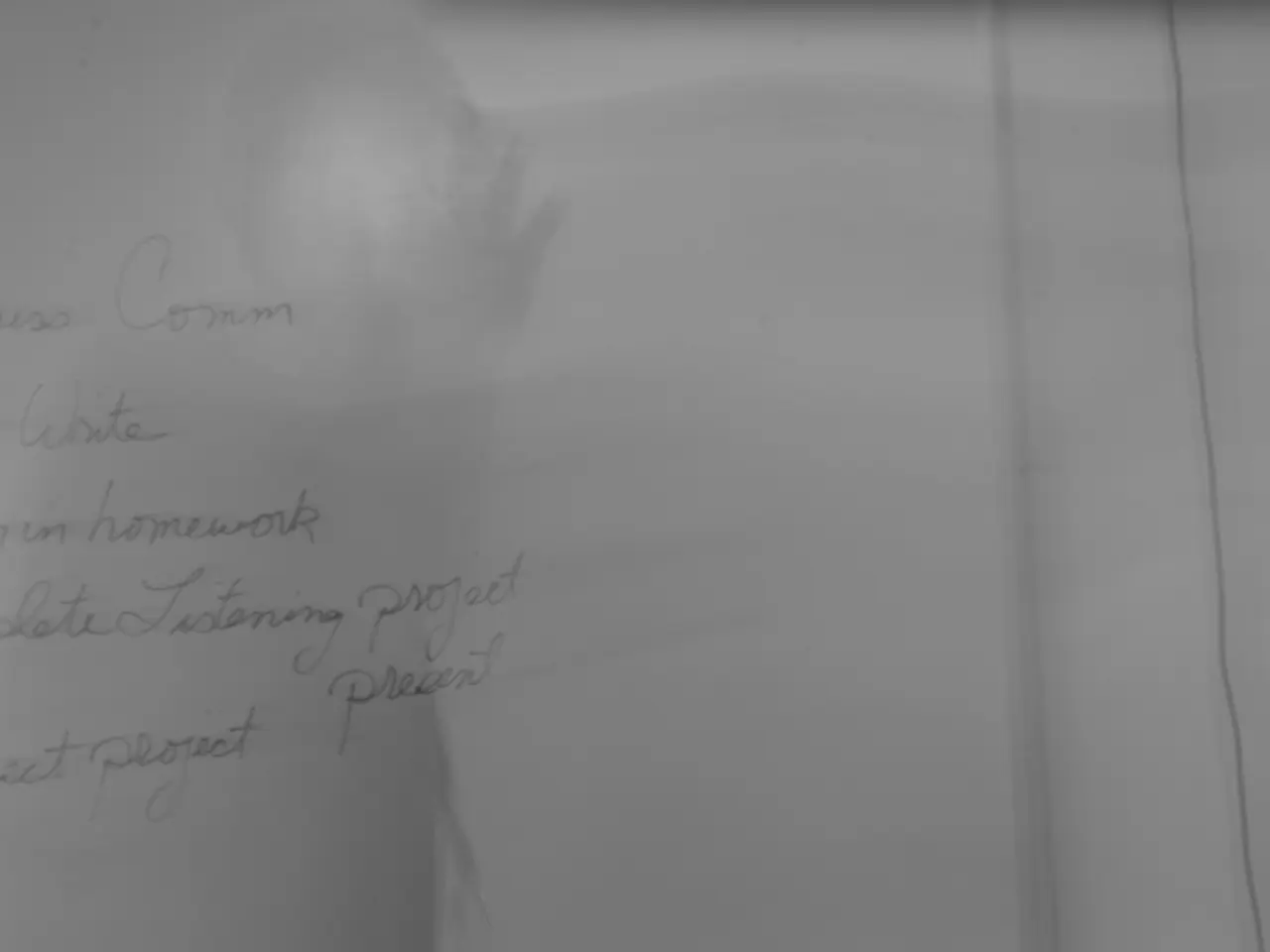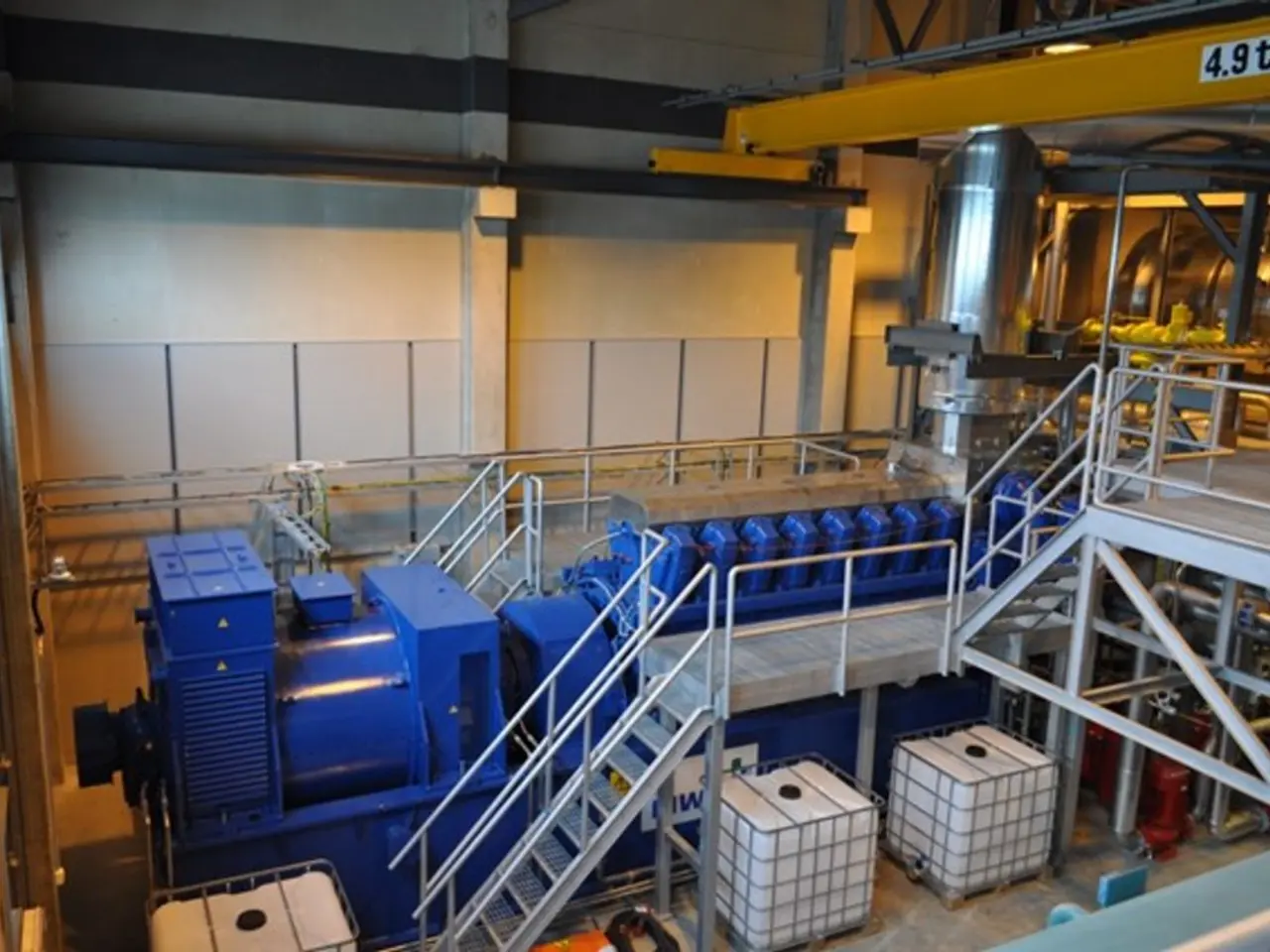Financial executives suggest that the United States has already descended into an economic downturn, with one out of every five expressing this view.
In the heart of 2025, the U.S. economy is navigating through a period of uncertainty, as business leaders express mixed feelings about the likelihood of a recession by the end of the year. According to a recent survey by the American Institute of Certified Public Accountants (AICPA) and the Chartered Institute of Management Accountants (CIMA), **34% of finance leaders expect a recession by the end of 2025**, with another 7% anticipating one in 2026. However, a significant portion—39%—remain unsure about the possibility of a recession [1].
The AICPA's research, based on 328 responses from CPAs and chartered global management accountants who hold leadership positions at their organizations, echoes other recent surveys of finance leaders. The survey shows a decline in executives' optimism about the U.S. economy after the November 2020 presidential election, with today's figure of those feeling optimistic dropping to just 27% [1].
On the other hand, a June 2025 poll of nearly 280 CEOs reveals a different picture. **Only 28% now expect a mild recession or economic slowdown in the next six months**, a sharp decline from 62% in April, a period of heightened tariff fears. This drop in recession expectations is attributed to easing trade tensions as several tariffs imposed earlier were paused or postponed, and ongoing trade negotiations showed promise [2][3].
The impact of tariffs and trade issues on the U.S. economy has been a significant concern for many business leaders. According to the Center for Audit Quality's survey, 60% of audit partners cite a recession as the largest economic risk for the businesses they work with. More than half of the respondents in the AICPA survey also reported experiencing some level of uncertainty due to tariffs [1].
However, not all respondents are equally affected. Twenty-three percent of the respondents said they've only experienced minor uncertainty over tariffs, and 10% said tariffs have been "insignificant." Conversely, 40% of the respondents characterized their uncertainty as moderate, and another 27% described it as significant [1].
In terms of the severity of a potential recession, 18% of those expecting a recession believe it will be severe, while 57% of those expecting a recession think it will be moderate [1]. The AICPA's survey also found that 35% of respondents are increasing their prices for customers as a result of tariffs [1].
In summary, while a significant minority of business leaders expect a recession by the end of 2025, the overall mood has recently improved due to easing trade tensions, though broad uncertainty remains, and optimism is much lower now than it was immediately after the 2020 election [1][2][3][4]. The optimism of business executives about the U.S. economy has "ebbed dramatically" in the past two quarters [1].
[1] AICPA and CIMA Business and Economic Outlook Survey, May 2025 [2] CEO Confidence Index, Conference Board, June 2025 [3] PwC's 22nd Annual Global CEO Survey, June 2025 [4] Center for Audit Quality's Audit Partner Survey, June 2025
- Despite the AICPA's survey indicating a minority of finance leaders expect a recession by the end of 2025, the overall mood among business leaders has shown a decline in optimism about the U.S. economy.
- The survey conducted by the Center for Audit Quality reveals that a recession is deemed the largest economic risk for the businesses they work with, with 60% of audit partners citing a recession as their concern.
- In a stark contrast, a poll of nearly 280 CEOs in June 2025 reveals that only 28% now expect a mild recession or economic slowdown in the next six months, down from 62% in April.
- The AICPA's research also found that 35% of respondents are increasing their prices for customers as a result of tariffs, suggesting a direct impact of trade issues on the business margin.




